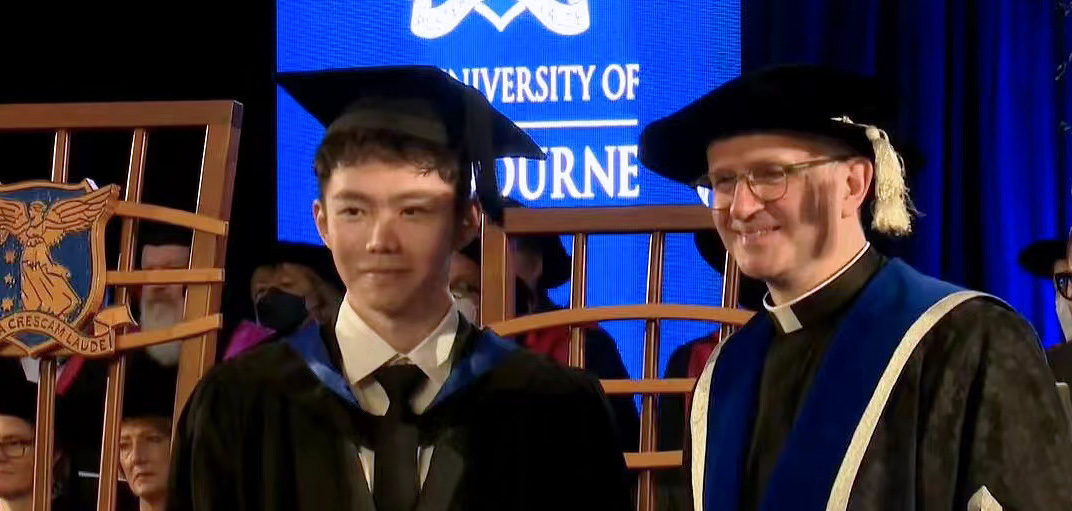'Life is my best teacher’: Meet Peter Chen, Master of Translation and Interpreting graduate

Studying away from home during COVID wasn’t always easy – but driven by his philosophy that it’s always too soon to quit, Peter Chen graduated with a Master of Translation and Interpreting in 2021. He talked to us about his study experience and his perspective on what attracted him to interpreting.
In a few sentences, can you tell us about who you are and what you do now you’ve graduated?
After two years of study in Melbourne, I graduated from the University of Melbourne with a Master of Translation and Interpreting at the end of 2021. Since then, I have worked in a communication company for eight months. Now I work in two casual roles and also do research regarding interpretation studies.
Why did you choose to study translation and interpreting?
English as a language has always been my passion. I was first motivated by a conference interpreter: the way she did her job fascinated me and drove me to learn more about interpreting (and translation) as a profession. I really feel like I’ve achieved the goal of overcoming the language barrier when I connect people together.
What new perspective did you take from your degree?
I developed a new way of understanding the process of translation/interpreting through both studying and working. It’s way more complicated than just converting one language to another. Most of the time, it’s connected to cultural-level interchange, and the fact that our multifaceted role is unpredictable amazes me when I’m practising.
What types of knowledge did you build in the Master of Translation and Interpreting?
I gained translation and interpreting knowledge from learning the basics (and theories) and building my understanding of Australian culture. I also learned to manage terminology, use translation technologies, and negotiate the cultural and intellectual boundaries of the Chinese and English-speaking worlds.
The most valuable thing I learned is 100% the professional competence in translating and interpreting that I developed in my degree.

Peter Chen graduating in 2021. (Image supplied.)
What do you consider your most valuable skill?
For translation and interpretation, the ultimate goal is to facilitate communications. A good conversation requires not only clear logic and appropriate tone, but active listening and the right questions.
To master all these, good grades are not enough. Life is my best teacher.
What do you want to do in the future – professionally and personally?
Professionally, I’m always working to keep getting better as an interpreter. It takes time and effort to build vocabs, practice the responsive ability and everything else you need for the role.
Personally, I’d love to become an academic and delve deeper into the interpreting field, and potentially even get back to UniMelb one day to contribute to the program.
What are the most exciting things in the future for translation and interpreting?
Defining “what is exciting” in this field is hard. For different translators/interpreters, we all find something interesting during our practice – and as we dig into it, maybe that process of delving is what makes us excited. Machine translation has been a hot topic for decades. For me personally, it is interpreter training.
Is there a philosophy or piece of advice that has held you in good stead throughout your life?
“It’s always too soon to quit.”
These two years have been tough because of COVID. At one point I really wanted to get back to China. I thought about people who fight against adversity and finally succeed So I tried a little harder.
What was the best moment of your degree?
I guess when I found out I got an H1 for my final thesis. I devoted so much time to it. During my second year, things were tough for me – not only the COVID situation but with my internship, PhD application and everything going on, I was overwhelmed. So the moment I knew I got H1 for my thesis, I was relieved – happily!